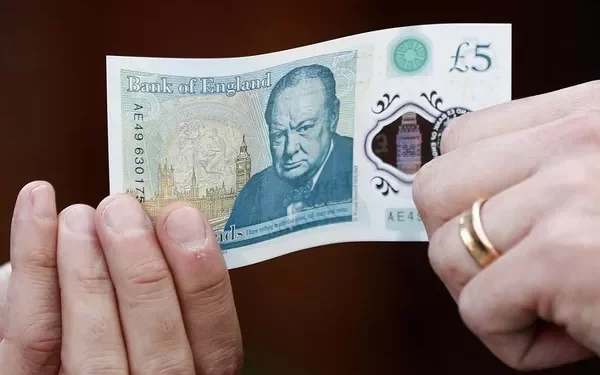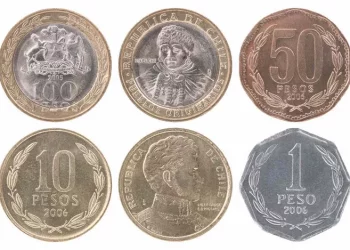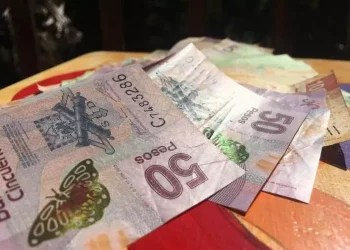Understanding how much 50 pounds (GBP) is worth in Turkish Lira (TRY) involves exploring various aspects including the current exchange rate, conversion calculations, and the multiple factors that influence exchange rates. This article will also delve into forecasts and trends, financial advice, legal and tax implications, economic indicators, and the global market impact, providing a comprehensive overview of the subject.
Current Exchange Rate
The exchange rate between the British Pound (GBP) and the Turkish Lira (TRY) fluctuates constantly due to a variety of economic factors. As of the latest data available in May 2024, the exchange rate stands at approximately 1 GBP = 40.94 TRY. This means that 50 GBP is equivalent to 2047.21 TRY. However, it is important to note that exchange rates are subject to continuous change due to market dynamics, economic policies, and geopolitical events.
Conversion Calculation
To understand how to convert 50 GBP to TRY, one can use the current exchange rate for a simple calculation. Given the exchange rate of 1 GBP = 40.94 TRY, the calculation would be as follows:
50 GBP×40.94 TRY/GBP=2047.21 TRY
This straightforward multiplication provides the direct conversion from British Pounds to Turkish Lira based on the current exchange rate. For more precise and up-to-date conversion, it is advisable to use real-time currency converters or financial services that offer currency exchange.
Factors Influencing Exchange Rates
Exchange rates are influenced by a multitude of factors, both domestic and international. Understanding these factors can provide insight into why exchange rates fluctuate and how they may change in the future.
1. Inflation Rates
Inflation is a primary factor that affects exchange rates. Typically, a country with a lower inflation rate than another will see an appreciation in its currency value. Conversely, higher inflation in Turkey compared to the UK will lead to a depreciation of the Turkish Lira against the British Pound.
2. Interest Rates
Interest rates set by central banks play a crucial role in determining exchange rates. Higher interest rates offer lenders a better return relative to other countries. Therefore, if the Bank of England raises interest rates while the Central Bank of the Republic of Turkey maintains lower rates, the GBP is likely to strengthen against the TRY.
3. Political Stability and Economic Performance
Political events, stability, and economic performance significantly impact exchange rates. Political unrest or poor economic performance in Turkey can lead to a weaker Turkish Lira. On the other hand, stable political conditions and robust economic performance in the UK can strengthen the British Pound.
4. Market Speculation
Traders’ and investors’ perceptions and speculations can drive currency value. Positive expectations about the UK economy might lead to an appreciation of GBP, while negative sentiment towards Turkey’s economy can depreciate the TRY.
5. Current Account Deficits
A country’s current account reflects the balance of trade, earnings on foreign investments, and transfer payments. A deficit typically means a country is spending more on foreign trade than it is earning and borrowing capital from foreign sources. This can weaken a country’s currency. Turkey’s current account deficits can thus weaken the TRY against the GBP.
Forecast and Trends
Forecasting currency exchange rates involves analyzing historical data, economic indicators, and geopolitical developments.
1. Historical Trends
Historically, the Turkish Lira has shown periods of significant volatility against major currencies, including the British Pound. Historical trends often show the TRY depreciating due to high inflation rates and political instability.
2. Economic Projections
Economic projections for the UK and Turkey are essential in forecasting exchange rates. For instance, if the UK economy is projected to grow steadily with controlled inflation, the GBP might appreciate. Conversely, if Turkey’s economy faces challenges such as high inflation, political instability, or economic sanctions, the TRY might depreciate further.
See Also:100 Pounds in Indian Rupees Today
3. Geopolitical Factors
Geopolitical factors, such as conflicts, trade agreements, or sanctions, can also influence exchange rates. For example, any geopolitical tensions involving Turkey could negatively impact the TRY.
Financial Advice
When dealing with currency exchange, particularly for significant amounts of money, financial advice is crucial.
1. Timing the Market
Timing the market can be crucial for getting the best exchange rates. Monitoring trends and economic indicators can help in deciding when to convert currency.
2. Hedging Strategies
For businesses or individuals with recurring currency exchange needs, hedging strategies can protect against adverse currency movements. Instruments such as forward contracts, options, and futures can lock in exchange rates for future transactions.
3. Diversification
Diversifying investments across different currencies and assets can mitigate risk. This strategy helps in balancing the potential losses in one currency with gains in another.
Legal and Tax Implications
Understanding the legal and tax implications of currency exchange is vital, especially for large transactions or businesses dealing in multiple currencies.
1. Reporting Requirements
Both the UK and Turkey have specific reporting requirements for currency exchange transactions, especially for large amounts. It is important to comply with these to avoid legal issues.
2. Taxation on Gains
In many jurisdictions, currency exchange gains can be subject to capital gains tax. Consulting with a tax advisor can provide clarity on how these gains are treated and what obligations might arise.
3. Anti-Money Laundering (AML) Regulations
AML regulations require thorough verification of the sources of funds being exchanged. Both the UK and Turkey have stringent AML laws, and it is crucial to ensure compliance to avoid legal repercussions.
See Also:500 Pounds in Dollars
Economic Indicators
Several economic indicators play a role in determining exchange rates and provide insight into future trends.
1. Gross Domestic Product (GDP)
GDP growth rates can indicate the overall health of an economy. Higher GDP growth in the UK relative to Turkey can lead to a stronger GBP.
2. Employment Data
Employment rates and job creation figures can influence currency strength. Higher employment rates usually translate to economic stability and a stronger currency.
3. Consumer Confidence
Consumer confidence indexes reflect the optimism of consumers regarding the economic outlook. High consumer confidence in the UK can bolster the GBP, whereas low confidence in Turkey can weaken the TRY.
Global Market Impact
The exchange rate between GBP and TRY does not exist in isolation but interacts with the global market.
1. Trade Relations
The UK and Turkey engage in bilateral trade, and the exchange rate affects the cost of exports and imports between the two countries. A stronger GBP makes Turkish exports cheaper and UK imports more expensive, affecting trade balances.
2. Foreign Direct Investment (FDI)
Exchange rates can influence the attractiveness of a country for foreign investment. A weaker TRY might attract more FDI into Turkey, as investors can get more value for their money.
3. Global Financial Markets
Global financial markets and economic conditions also impact exchange rates. Crises in major economies or financial markets can lead to safe-haven flows into currencies like GBP, affecting its strength relative to TRY.
Conclusion
Understanding how much 50 pounds is in Turkish Lira requires not only a straightforward conversion calculation but also a deep dive into the factors influencing exchange rates. The current exchange rate, as of May 2024, is approximately 1 GBP = 40.94 TRY, making 50 GBP equivalent to 2047.21 TRY. However, exchange rates are influenced by a variety of factors including inflation, interest rates, political stability, market speculation, and current account deficits.
Forecasting exchange rates involves analyzing historical trends, economic projections, and geopolitical developments. Financial advice is crucial in navigating currency exchange, particularly with strategies such as market timing, hedging, and diversification. Legal and tax implications must be understood to ensure compliance with reporting requirements, taxation on gains, and anti-money laundering regulations.
Economic indicators such as GDP, employment data, and consumer confidence play a significant role in determining currency strength. The global market impact, including trade relations, foreign direct investment, and overall financial market conditions, also affects exchange rates.
In conclusion, while the simple calculation shows that 50 pounds is approximately 2047.21 Turkish Lira, the broader context of economic factors, market conditions, and strategic financial planning is essential for a comprehensive understanding of currency exchange.
Related Topics:


























